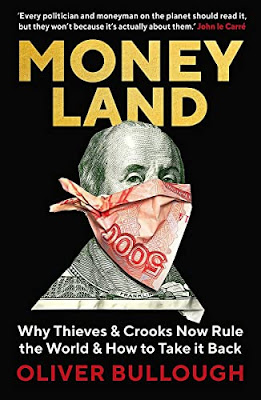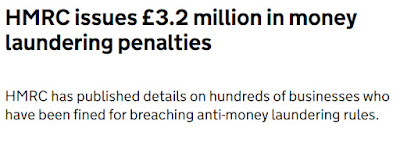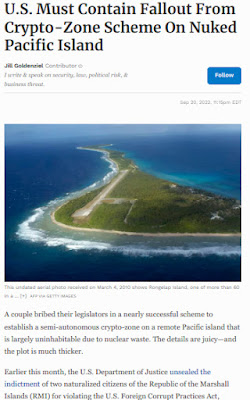Top Ten Ideas From The Book "Moneyland: Why Thieves And Crooks Now Rule The World And How To Take It Back"
"Moneyland: Why Thieves And Crooks Now Rule The World And How To Take It Back" is a book written by Oliver Bullough, exploring the secretive world of offshore finance and tax havens. It investigates how the wealthy and powerful exploit these financial systems to hide their wealth, evade taxes, and maintain their positions of influence.
1. Offshore Finance and Tax Havens: The book delves into the complex world of offshore finance and tax havens, where vast sums of money are hidden away in secretive jurisdictions to avoid taxation and scrutiny. Moneyland delves into how countries like the British Virgin Islands, Cayman Islands, and Panama serve as popular tax havens and centers for offshore financial activities.
2. The Hidden Wealth of the Super-Rich: "Moneyland" exposes how the wealthiest individuals and corporations exploit these offshore financial systems to hide their assets and avoid paying taxes. The book illustrate how billionaires and wealthy corporations use shell companies registered in tax havens to own luxury assets like yachts, mansions, and artwork, making it difficult to trace the actual beneficiaries.
3. Oligarchs and Kleptocrats: The book discusses how some of the world's most powerful and corrupt individuals use offshore structures to launder money, siphon off national resources, and maintain their grip on power. It expose cases where political elites and corrupt leaders from resource-rich nations exploit offshore structures to launder money and hide stolen funds.
4. Regulatory Failures: Bullough highlights the failures of international regulatory systems, which often lack transparency and enforcement, allowing money to flow freely across borders with minimal oversight. The book discuss instances where international regulatory bodies struggle to coordinate effectively, allowing illicit funds to flow through offshore banks and corporate networks with minimal oversight.
5. Impact on Developing Nations: The book explores how the flight of capital to offshore havens negatively affects developing countries, depriving them of much-needed resources and perpetuating economic inequality. It provide examples of how money routed to tax havens deprives developing countries of significant tax revenues, exacerbating economic inequality and hindering social development.
6. Offshore Enablers: "Moneyland" discusses the role of banks, law firms, and other financial intermediaries who facilitate the creation and operation of offshore structures for their wealthy clients. It point to specific instances where well-known banks, law firms, and financial consultants are involved in creating and managing offshore accounts and structures for their clients.
7. The Global Elite: Bullough reveals how an interconnected network of lawyers, bankers, politicians, and other elites enables the maintenance and growth of Moneyland, perpetuating a system that favors the wealthy and powerful. It illustrate how certain political leaders, wealthy individuals, and corporations maintain relationships with these offshore enablers to perpetuate their financial secrecy and influence.
8. Influence and Corruption: The book uncovers how offshore financial systems can foster corruption and undermine democracy by allowing politicians and public officials to hide ill-gotten gains and evade accountability. It uncover cases where public officials and politicians receive bribes or kickbacks funneled through offshore entities, allowing them to hide their ill-gotten gains.
9. Money Laundering and Criminal Activity: "Moneyland" sheds light on how offshore finance can be exploited for money laundering and how criminal organizations can use these structures to legitimize their ill-gotten gains. It describe instances of criminal organizations using complex offshore schemes to launder money from illegal activities such as drug trafficking, arms trade, and human trafficking.
10. Solutions and Reforms: Finally, the book explores potential solutions and calls for reforms to increase transparency, strengthen international cooperation, and address the issues posed by Moneyland. It propose reforms such as increased transparency in beneficial ownership, better cross-border cooperation, and stricter regulations to combat offshore financial secrecy and illicit financial flows.
Related Posts On Finance & Wealth Creation:
1. TOP TEN IDEAS FROM THE BOOK "THINK & GROW RICH" BY NAPOLEON HILL
2. THE FIRST MOVER ADVANTAGE IN ARTIFICIAL INTELLIGENCE: PAVING THE WAY FOR INNOVATION
3. TOP DISADVANTAGES OF INHERITANCE TAX IN THE UNITED KINGDOM AND IT'S IMPACT ON WEALTH CREATION
4. THE IMPACT OF INFLATION ON THE CREATION OF WEALTH: NAVIGATING A CHANGING FINANCIAL LANDSCAPE
5. THE MERITS OF FINTECH AND REGTECH: LEVERAGING ARTIFICIAL INTELLIGENCE FOR FINANCIAL INNOVATION AND REGULATORY COMPLIANCE
Older Related Posts:
1. THE POTENTIAL OF WEALTH GENERATION THROUGH INVESTING IN EMERGING MARKET BONDS
2. TOP IDEAS TO CONSIDER IN ORDER TO MAKE MONEY WITH STOCKS AND SHARES
3. WEALTH CREATION -TOP TEN BEST & WORST IMPACTS OF GENERATIONAL WEALTH
4. COMPARING WEALTH GENERATION POTENTIAL & PITFALLS: STOCK MARKET VS. REAL ESTATE
5.COMPARING WEALTH CREATION POTENTIAL: UNITED STATES VS. UNITED KINGDOM
Other Older Unrelated Posts From This Blog:
3. WHAT WILL BE THE IMPACT OF BREXIT ON BRITISH PAKISTANIS?
4. HOW TO PERFORM KYC CHECKS ON A CENTRAL BANK? HOW TO ONBOARD A CENTRAL MONETARY AUTHORITY?





Comments
Post a Comment
Thanks for leaving comments. You are making this discussion richer and more beneficial to everyone. Do not hold back.